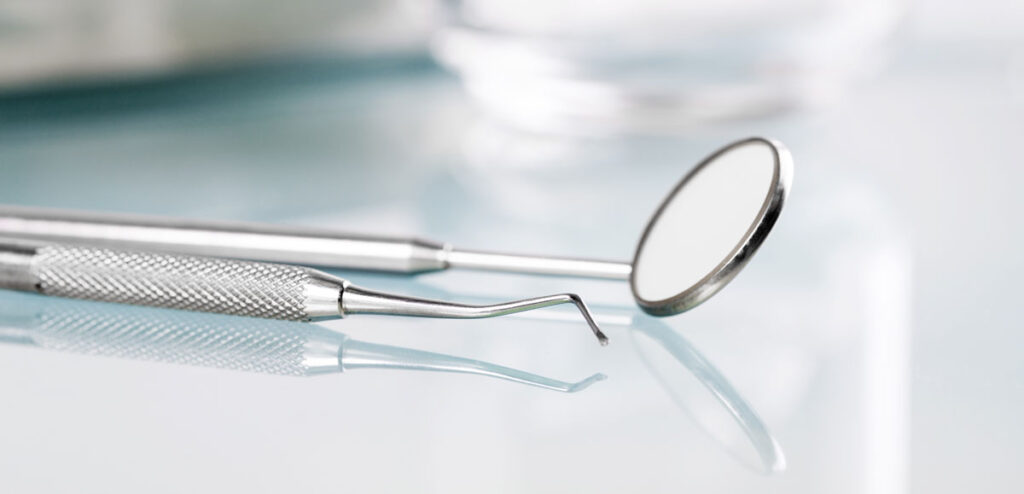With NHS dentist availability increasingly limited, many are now choosing to go private. However, the cost of these services can often be a significant concern. Understanding how private dentist prices are structured and what financial help is available can help ease this concern and allow you to make informed decisions about your oral health.
Let’s look at the typical prices for various private dental services, from routine check-ups to complex procedures like dental implants or orthodontics. We’ll also explore the options that can help make your private dental treatment cost more affordable.
Whether you’re new to private dentistry or considering a specific treatment, this guide will give you a clear picture of what to expect and how to manage the costs effectively.

The benefits of private dental care
While NHS dental care is essential and accessible, many individuals choose private dental care for its unique benefits. Private dentistry provides a range of advantages that can enhance your overall experience and improve your dental health. Below are some key reasons why private dental care might be the right choice for you.
Shorter waiting times
There are long waiting lists of people who want an NHS appointment. In contrast, private dentists typically offer more flexible appointment schedules, with same-day or next-day availability. This particularly benefits patients in need of urgent care, or those who want to avoid delays in getting treatment.
More choice of treatment options
Private dental care offers a broader range of treatment options. While NHS dentistry focuses on essential and emergency care, private practices can provide a wider array of cosmetic and advanced treatments that may not be available under the NHS. These treatments can include cosmetic procedures, as well as advanced restorative work, such as dental implants and complex root canal treatments.
High-quality materials
Private dentists generally have access to higher-quality materials compared to the NHS. For example, private practices often use premium materials such as porcelain or zirconia for crowns, fillings, and bridges. These materials not only improve the aesthetic outcome but also tend to be more durable and long-lasting, ensuring your dental work looks natural and performs well for many years.
Personalised care and longer appointments
Private dentists are often able to provide more personalised care due to smaller patient lists. This means they can spend more time during each patient examination to create a tailored treatment plan and address any concerns in depth. Longer appointments also allow for more detailed procedures, which can lead to better results and a more comfortable experience for the patient.
Comfort and state-of-the-art facilities
Private dental practices generally offer a higher level of comfort and more modern facilities than the NHS. From relaxing waiting areas to advanced treatment rooms, they are designed to provide a more pleasant experience. Many private dentists also offer sedation options for anxious patients, creating a stress-free environment during procedures.

Focus on preventative care
Private dental care places a strong emphasis on preventative measures to maintain long-term oral health. In private practices, dentists often take a proactive approach, focusing on identifying potential issues before they become serious problems.
By prioritising prevention, private dentists aim to reduce the need for further treatment in the future, helping you maintain a healthier smile and avoid costly procedures. Regular visits and personalised guidance are key aspects of the preventative care model in private dentistry.
No restrictions on treatments or providers
Private dentistry allows you to choose from a wider variety of treatments and procedures that best meet your needs.
Unlike NHS care, which may limit treatment options to what is deemed essential or medically necessary, private dentists have the flexibility to offer any treatment available, including elective cosmetic work or advanced dental procedures.
Patients will often be able to choose the dentist they see at a private practice, which allows for greater control over the quality of care they receive.
Emergency care
Private dental practices are often more able to quickly handle dental emergencies. Whether you’re dealing with a broken tooth, severe pain, or an abscess, private dentists are more likely to offer immediate care or be available for same-day emergency appointments. With private care, you can often avoid long delays, which may be more common in NHS dental practices.
Transparent pricing and flexible payment plans
Private dentists generally provide clear and upfront information about the cost of treatments so that you know how much you will need to budget.
Additionally, many private practices offer flexible payment plans, which can help manage the cost of more expensive procedures.
For treatments like dental implants or orthodontics, you may be able to spread the cost over time, making these procedures more accessible to those who may otherwise find them financially challenging.
Treatment for nervous patients
Private dentists often specialise in providing care for nervous or anxious patients. They are typically more willing to accommodate concerns and offer additional support during treatment.
Whether it’s through offering sedation options, creating a calm atmosphere, or taking more time to explain each step of the procedure, private practices focus on ensuring that even the most anxious patients feel comfortable and relaxed during their visit.
What factors determine the prices for private dentist services?
The prices for private dental services are influenced by a range of factors. Understanding these can help you better manage expectations and plan accordingly for your treatment.
Type of treatment required
The cost of private dental services varies depending on the procedure being carried out. Routine treatments such as a basic check-up or teeth cleaning by a dental hygienist are less expensive than complex procedures like root canal treatment, dental implants, or orthodontic treatments.
Geographic location
The location of the dental practice plays a significant role in pricing. Private dental practices in London or affluent areas tend to charge higher fees due to the increased cost of running a practice in these areas.
In contrast, private dentists in smaller towns or less central locations might offer lower prices but still maintain the same quality of care.
Specialist care & expertise
Private dental care offers access to specialist expertise that may not be readily available through NHS services.
Many private practices have specialists in areas such as orthodontics, periodontics, and cosmetic dentistry within their team. This means that if you need more advanced or specialised treatment, you will receive care from experts in the field.
Equipment and technology
Private practices will invest in the latest dental equipment and technology to offer cutting-edge treatments and provide a higher level of patient comfort. Modern dental techniques such as digital X-rays, laser dentistry, and computer-assisted implants can increase the cost of dental procedures.

Materials used
The materials your dentist uses for your treatment can also affect the price. For instance, porcelain crowns and white fillings are more expensive than the materials used in NHS dentistry but provide a more aesthetic and durable result.
Average private dentist costs for common treatments
Understanding the price ranges for private dentist services can help you budget and plan your treatment effectively. Here’s an overview of what you might expect to pay:
- Routine check-up and scale and polish: A standard check-up and basic cleaning from a dental hygienist generally cost between £40 and £100. A more advanced cleaning may cost slightly more, especially if you’re trying to prevent gum disease or need specialised care.
- Fillings: For a white filling, costs range from £90 to £250 depending on the filling’s location and complexity. These fillings blend with natural teeth, offering a discreet solution that many patients prefer.
- Root canal treatment: Root canal work can cost between £300 and £700 for complex cases. Although this may be higher than NHS prices, private practices often use advanced technology that can make the whole procedure more comfortable.
- Tooth extraction: Prices for tooth extraction vary widely, from £80 for a simple extraction to over £250 for a complicated removal.
- Dental implants: Implants are among the most expensive treatments, costing between £2,000 and £3,000 per implant. This price reflects the complexity of the procedure and the materials used.
- Acrylic dentures: Dentures can range from £400 to £900 per arch. High-quality dentures may cost more but offer a better fit and comfort.
Common cosmetic procedures and their costs
Cosmetic dentistry offers several treatments to enhance the appearance of your smile. While these procedures aren’t typically covered by the NHS unless medically necessary, private dentists provide a wide range of options. Below are common treatments, what they involve, and their costs.
Teeth whitening
Teeth whitening is a popular procedure to lighten teeth stained by food, drink, smoking, or ageing. Whitening is a non-invasive treatment that can have an immediate impact on your smile’s brightness.
- Cost: £200 to £500 for in-office treatments; at-home kits from £150 to £300.
- Procedure: The dentist applies a whitening gel to the teeth, which is activated using a special light or laser. Home kits involve custom trays filled with whitening gel that are worn for a few hours each day.
Dental veneers
Veneers are thin shells of porcelain or composite resin bonded to the front of teeth to correct imperfections such as chips, cracks, or discolouration. They can also improve the shape or size of teeth.
- Cost: £500 to £1,000 per porcelain veneer; £250 to £450 for composite veneers.
- Procedure: The dentist will prepare your teeth by removing a thin layer of enamel before taking impressions for custom-made veneers. These are then bonded to your teeth, offering a natural-looking result.
Crowns
Dental crowns are used to cover damaged or weakened teeth, providing strength and improving appearance. They can restore cracked or decayed teeth and are often used for cosmetic purposes in the front teeth.
- Cost: £500 to £1,500 per crown, depending on the material (porcelain, ceramic, or metal).
- Procedure: The damaged tooth is reshaped to fit a custom-made crown. Crowns are typically fitted in two visits: one for preparation and impressions and another for placement.
White fillings
White fillings, made of composite resin, are used to treat cavities while blending seamlessly with the natural tooth colour. Unlike traditional silver fillings, they are aesthetically pleasing and ideal for visible areas like the front teeth.
- Cost: £100 to £300 per filling.
- Procedure: The decayed portion of the tooth is removed, and the composite resin is applied in layers, shaped to match the tooth’s contours, and hardened with a special light.
Composite bonding
Composite bonding is a versatile treatment used to address a variety of cosmetic issues, such as chips, cracks, gaps, and slight misalignments. The dentist uses a tooth-coloured resin to restore the tooth’s shape.
- Cost: £150 to £400 per tooth.
- Procedure: The resin is applied directly to the tooth, then shaped and hardened with light. Bonding is ideal for minor imperfections and can be completed in a single visit.
Teeth straightening (Invisalign)
Invisalign is a clear aligner system designed to straighten teeth discreetly. Unlike traditional braces, Invisalign aligners are virtually invisible and can be removed for eating or cleaning.
- Cost: £1,500 to £4,000, depending on the complexity of the treatment.
- Procedure: A series of clear, custom-made aligners are worn over the teeth, gradually shifting them into the desired position. Aligners are typically changed every two weeks, with regular check-ups from the dentist.
Porcelain bonded bridges
A dental bridge is used to replace one or more missing teeth. A porcelain bonded bridge uses crowns on the adjacent teeth to support a false tooth, filling the gap and restoring function and aesthetics.
- Cost: £500 to £1,200 per unit.
- Procedure: The adjacent teeth are prepared for crowns, and a custom-made bridge is placed between them to fill the gap. The procedure generally requires two visits: one for impressions and another for placement.
Advanced dental procedures: dental implants, orthodontics, and dentures
Private dental care provides access to advanced procedures that may not be available through the NHS or may involve longer waiting times. Treatments like dental implants, orthodontics, and dentures are often better suited to private practices, where more resources, technology, and expertise are available.
Dental implants
Dental implants are a permanent solution for missing teeth, involving the surgical placement of a titanium post into the jawbone to replace the tooth root, followed by a crown.
- Cost: £1,500 to £3,500 per implant.
- Procedure: After a consultation and assessment of your oral health, the titanium post is surgically inserted into the jaw. After a healing period, a crown is placed on top. In some cases, further treatments like bone grafting may be required.
- Benefits: Implants are durable, look natural, and restore function. They also prevent bone loss in the jaw.
Orthodontics (braces and clear aligners)
Orthodontics is used to straighten misaligned or crooked teeth. Options include traditional metal braces or more discreet clear aligners like Invisalign.
- Cost: Metal braces £2,000 to £4,000; Clear aligners £1,500 to £5,000.
- Procedure: Traditional braces consist of metal brackets and wires, while clear aligners are custom-made, transparent trays that gradually shift the teeth into place.
- Treatment time: Typically 12 months to 3 years, depending on the severity of the misalignment.
- Benefits: Straightening teeth improves both appearance and function, making teeth easier to clean and reducing the risk of dental problems.
Dentures
Dentures are removable prosthetic devices that replace missing teeth. They can be full (replacing all teeth) or partial (replacing a few teeth).
- Cost: Partial dentures £400 to £1,500; Full dentures £1,000 to £2,500.
- Procedure: Dentures are custom-made to fit your mouth. After impressions are taken, they are created in a lab and adjusted for comfort and fit.
- Benefits: Dentures restore your ability to eat and speak comfortably, and they are a non-invasive option for those unable to have implants.
Private dental fees compared to NHS prices
While NHS dental care remains accessible for basic needs, private dentistry generally offers a more comprehensive experience. Here’s a side-by-side comparison to highlight the differences:
- NHS prices: NHS dental care operates on a banding system, with Band 1 covering exams and basic treatments (£25), Band 2 covering fillings and extractions (£65), and Band 3 covering more complex procedures like crowns (£282).
- Private treatment costs: Private dentist cost for similar treatments often exceeds NHS fees but includes additional benefits such as flexible scheduling, access to advanced technology, and a wider range of materials, such as porcelain-bonded crowns.
NHS dental care for free: who qualifies?
NHS dental services are generally available at a subsidised cost, but certain groups are entitled to free treatment under specific circumstances.
Those who are under 18, under 19 and still in full-time education, or aged 60 and over automatically qualify for free NHS dental care. Additionally, pregnant women and those who have given birth in the past 12 months are entitled to free treatment, as are individuals receiving certain benefits.
It’s also worth noting that if you are receiving specific forms of disability benefits or meet other health-related criteria, you may qualify for free dental care. However, even if you do not meet these criteria, NHS dental charges are often lower than private dental fees, making them a more affordable option for many.

Financial help for private dental treatments
Private dental treatment costs may be a concern, but financial assistance options are available:
Dental insurance
Private dental insurance can cover a portion of your treatment costs, including preventive check-ups, x-rays, and major treatments like root canal work. Plans vary based on the provider, so it’s essential to review coverage carefully. However, it’s important to note that most dental insurance plans do not cover purely elective or cosmetic procedures, like teeth whitening or veneers.
In-house payment plans
Many private practices offer their own payment plans to make dental work more affordable. Payment plans can spread the cost of procedures like dental implants, crowns, and even cosmetic treatments over several months, reducing the need to pay upfront.
Medicred: flexible payment plans for private dental care
Medicred is a UK-based dental finance provider that offers flexible payment plans for private dental care. We work with dentists across the country to provide financing options for patients so that they can access treatments without the immediate financial burden.
How it works: Medicred offers a range of 0% interest plans with various repayment periods. Patients can apply for finance easily online; once approved, they choose the repayment plan that best suits their budget, spreading the cost of their dental treatment over a period of three to twelve months.
Benefits:
- Affordable monthly payments: With Medicred, patients can break down the cost of their dental treatment into manageable monthly payments.
- Access to immediate treatment: Medicred helps eliminate the need for delayed treatments due to financial concerns. This ensures that patients can begin their treatment right away without waiting for funds to become available.
- No upfront costs: One of the key advantages of Medicred is that patients do not need to pay upfront for their treatment. The payment plan kicks in after the treatment has been completed, making it easier for many patients to access the care they need.
How to apply for Medicred financing
Applying for financing through Medicred is easy. Here’s a quick overview of the process:
Consultation: Speak with your dentist to discuss the treatment options and associated costs. Your dentist will help you understand payment plans and help you decide whether this is right for you.
Application: Once you’ve decided on your treatment, fill out the application form on our website.
Approval: We will assess your application and notify you of the decision. This usually happens within minutes, and if approved, you can move forward with your treatment.
Repayment: After the treatment, you will begin making the agreed monthly payments based on your chosen plan.

Making the right choice for your dental health
Understanding the prices for private dentist services is essential for anyone considering private dental care. While the costs are higher, the benefits and level of personalised care on offer at a private practice might just make it worth paying for.
Fortunately, financing plans like those offered by Medicred make it easier for patients to spread payments over time, ensuring that necessary care is accessible without the immediate financial burden.
Ultimately, private dentistry can provide the flexibility and expertise to deliver the treatment you deserve. By understanding the costs and exploring available financial options, you can make informed choices about your dental care for the best possible outcome.